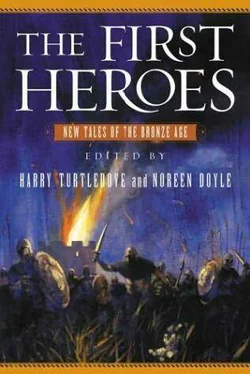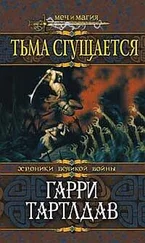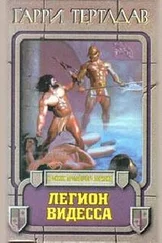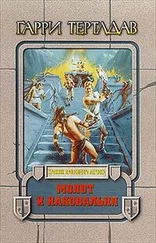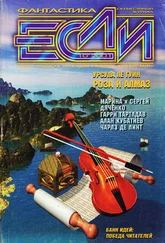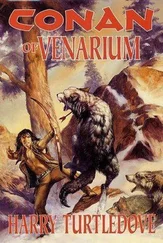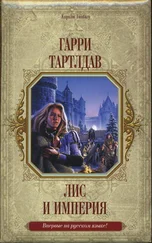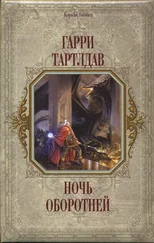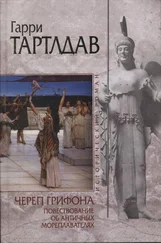Гарри Тертлдав - The First Heroes
Здесь есть возможность читать онлайн «Гарри Тертлдав - The First Heroes» весь текст электронной книги совершенно бесплатно (целиком полную версию без сокращений). В некоторых случаях можно слушать аудио, скачать через торрент в формате fb2 и присутствует краткое содержание. Жанр: Фантастика и фэнтези, на английском языке. Описание произведения, (предисловие) а так же отзывы посетителей доступны на портале библиотеки ЛибКат.
- Название:The First Heroes
- Автор:
- Жанр:
- Год:неизвестен
- ISBN:нет данных
- Рейтинг книги:3 / 5. Голосов: 1
-
Избранное:Добавить в избранное
- Отзывы:
-
Ваша оценка:
- 60
- 1
- 2
- 3
- 4
- 5
The First Heroes: краткое содержание, описание и аннотация
Предлагаем к чтению аннотацию, описание, краткое содержание или предисловие (зависит от того, что написал сам автор книги «The First Heroes»). Если вы не нашли необходимую информацию о книге — напишите в комментариях, мы постараемся отыскать её.
The First Heroes — читать онлайн бесплатно полную книгу (весь текст) целиком
Ниже представлен текст книги, разбитый по страницам. Система сохранения места последней прочитанной страницы, позволяет с удобством читать онлайн бесплатно книгу «The First Heroes», без необходимости каждый раз заново искать на чём Вы остановились. Поставьте закладку, и сможете в любой момент перейти на страницу, на которой закончили чтение.
Интервал:
Закладка:
I understood his reasons well. In the east, Assyrian armies were on the march in the borderlands near the Euphrates. In the north, the Kaska tribes were raiding again, probing for weakness. He dared not withdraw his armies from these borders just to repel a few sea-raiders from Wilusa, so far away from Hattusa, the center of the kingdom.
Yet if the Ahhiyans took the citadel of Taroisa, they would be in a position to control all the sea traffic through the straits into the Black Sea. They could strangle our trade. They might even make an alliance with the Kaska tribes along the coast. The Great King knew he could not allow this to happen.
In due course there came a reply from the Ahhiyan king Agamemnon:
Indeed I am at peace with the Land of Hatti, my brother. I have only attacked Priamos at Troia because the gods require me to avenge a great sacrilege. Paris, son of Priamos, has violated the guest-friendship he had with my brother Menelaos, king of Sparta. He came to the palace of Menelaos and stole from the altar the golden figure of the goddess He-lene. He took with him also treasure and women from the palace. The gods would destroy me if I ignored such a crime.
I have taken a sacred vow to punish Priamos and restore the golden goddess to her altar. But let this not be the cause of war between us, my brother, between the land of Achaia and the Land of Hatti. My quarrel is only with Priamos and Paris his heir, not with my brother the Great King of the Hittites. In token of my good will I send you these gifts, a gold and crystal flask of scented oil and a two-handled silver cup, embossed with images of the Wine God.
When I had finished reading the letter, the king was greatly troubled. "Sacrilege. This is a grave charge. But how can I be sure of Agamemnon? Gifts are no guarantee of the truth." He turned the silver cup in his hands, admiring its workmanship.
"Yes," I replied, "it is a gift fit for a king, but I have to wonder—was it looted from one of your subjects in Wilusa?"
"There is one way to find out," he said finally. "Hantili, I send you now to Wilusa so you can report to me on this matter as you see it with your own eyes. I know it may be hard to make such a journey at your age, but there is no one I trust more to tell me the truth. Let me know: Was there truly sacrilege committed by Priamos's son Paris? Have the Ahhiyans attacked in force? With what strength—how many men, how many chariots? Do they come for conquest or only for revenge? Tell me whether I need to send my army to Wilusa."
Now I am in all things the servant of the Great King. I go at his command.
By the time I arrived at the citadel of Taroisa in Wilusa, Agamemnon and his Ahhiyan sea-raiders had already sailed away, taking the spoils of their raids onto their ships and returning to their own lands in the west, across the sea. Men here tell me, men who know the sea, that contrary winds and the risk of storms make it impossible to set sail into open waters once the summer has come to an end.
Men here in Wilusa speak the language of the Ahhiyans, whom they call Achaians. Many of them have Achaian blood. In the past, in times of peace, much trade with the Achaian lands has passed through this harbor, making Wilusa a rich land and ripe for plunder.
Men tell me the Achaians were raiding up and down the coast, sacking the towns, carrying off the horses and livestock, carrying off the women into slavery. They say they struck the nearby islands, as well—Tenedos, Lesbos, Lemnos—though I have not seen these places with my own eyes. But with my own eyes I have seen the homesteads of Wilusa in ashes, the fields and groves despoiled. I have seen the orphans and the old people starving at the roadsides, begging for bread. This seems to me as if Agamemnon was more interested in plunder than in avenging sacrilege.
At Taroisa, which men here call Troia, the evidence of war is everywhere. I myself have seen the tar-stained marks at the shoreline where the Achaian ships were drawn up out of the water—a great host of ships, and men tell me that each one can hold fifty men, to row and to fight. This was a large force! I saw the earthen rampart, also, that they threw up to protect their ships, though the men of Troia have by now demolished it. They seem convinced the raiders will return in the next season.
Troia has the look of a place long besieged. It is evident that the hardest fighting has been on the plain that lies below the walls, between the city and the sea. The land there has been trampled to dust by the two contending armies, the hooves of their horses, the wheels of their chariots, the feet of their infantry. And there is the stench of the city, of too many bodies crowded together behind walls for too long. It is not a thing a man forgets, once he has known it: the odor of war, the odor of death.
Yet Troia's walls still stand. They are strong walls, well-built walls. I recall that the citadel fell in the time of the Great King Hattusili, but it is apparent that the ramparts since have been rebuilt, stronger than before. The citadel occupies the summit of a hill, and the walls rise above it, thick and well-sloped. There is a good, deep cistern inside the walls, and an ample supply of grain put by in the king's storehouses. I do not think Troia will fall easily.
All this I have seen myself, with my own eyes. But on the question of the sacrilege Agamemnon has claimed he must avenge, it is harder to discover the truth. Some men insist that Agamemnon lies and Paris committed no theft. Others tell me it was not the golden figure of He-lene that he took from Menelaos, but Menelaos's wife, who was named Helene for the goddess. A few others say that Helene the wife of Menelaos is the goddess herself, but of course this is the sort of foolish notion that a man will hear if he goes seeking information from strangers in the marketplace and the harbor.
As far as I can tell the truth of it, this is what I have learned: Of all the sons of Priamos, and there are many, only two have ever been considered as heirs to his throne—Paris and Hektor. Paris is the elder, but he was passed over because of an unfavorable prophecy at his birth.
Most men have always favored Hektor to be king after Priamos.
But several years ago, an oracle proclaimed to Paris: When golden Helene comes as a bride to Troia, then will her bridegroom take a throne. Or at least Paris claimed to have such an oracle, and Priamos believed it, for when Paris returned from his raid on the palace of Menelaos with the golden figure of Helene, the king named him heir and gave him the wife of Menelaos as his wife. Other men say it was Priamos who had this prophecy in a dream. In any case, say the supporters of Paris, the theft was the will of the gods, no sacrilege at all.
But the men who favor Hektor deny this, and many of them curse Paris as the cause of this war.
The people here are hungry and full of fear. The fields, the orchards and groves surrounding the city have all been despoiled, the herds all driven from the pastures. I have seen a few ships in the harbor, bringing grain, now that the Achaians have finally sailed away. But of course the price is high. The poorest people are already reduced to selling their children or themselves to buy food. So it is always in a siege.
But Priamos is still rich, and men say that he has sent word to the kings of nearby lands, offering them gold and silver if they will come to his aid. For men all say the Achaians will return in the spring to renew their attack on Troia, as soon as the winds allow them to sail.
I have found a house here and a couple of slaves to keep it, a woman and a boy. Now that the Achaians have returned to renew their war, they have plenty of captives to sell, and the price is low.
I deal in these matters with Agamemnon's steward, a man named Glaukos, a man of my own kind: men who write and keep accounts, the records of what goods have been taken and distributed to the soldiers in camp; men who know the price and cost of things. I have decided to set up as a merchant, a dealer in the spoils of war. This will give me a chance to observe the Achaians without arousing undue suspicion. I expect I will make a good profit from it as well, for the Achaians can only transport home as much plunder as will fit into their ships. The rest they must sell.
Читать дальшеИнтервал:
Закладка:
Похожие книги на «The First Heroes»
Представляем Вашему вниманию похожие книги на «The First Heroes» списком для выбора. Мы отобрали схожую по названию и смыслу литературу в надежде предоставить читателям больше вариантов отыскать новые, интересные, ещё непрочитанные произведения.
Обсуждение, отзывы о книге «The First Heroes» и просто собственные мнения читателей. Оставьте ваши комментарии, напишите, что Вы думаете о произведении, его смысле или главных героях. Укажите что конкретно понравилось, а что нет, и почему Вы так считаете.
